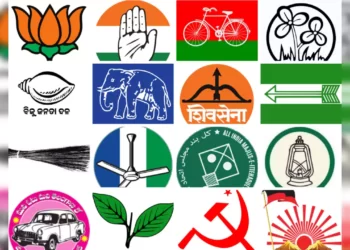[ad_1]
At the Moreh border, Rozya Akter, a 14-year-old Rohingya Muslim girl when entered, relentlessly moved by Assam Police towards the Check-gate under the procedure of their duty of deporting an ‘illegal foreigner’ as ordered by Indian state agencies. There’s violent turbulence going on in Myanmar following the February 1 military coup.
800,000 alike tortured girls of her ethnic community fled across the border from Myanmar security forces surviving rape torture and murder. Myanmar immigration authorities refused to open the gate of the international border by saying that the situation is not appropriate for any kind of deportations as an “act of kindness and humanity”.
Rozya Akter is being sheltered in Silchar.
India flouted the international humanitarian law’s jus cogens principle of non-refoulment and deported 40 Rohingya refugees to Myanmar in 2018. Rozya Akter, in 2021 supposedly protected by multiple international and national human was to be the first deported after the upheaval of the Military Coup in Myanmar.
On the 8th of April, The Supreme Court justified the Centre’s purpose of deporting Rohingya refugees and turned it back on the genocide-like situation in Myanmar by holding irrelevant, the legal principle of non-refoulment.
Within weeks after the military flattened Myanmar’s quasi-democratic structure and unleashed a brutal crackdown on peaceful protesters calling for the restoration of democracy, on the annual Tatmadaw (military) Day in the capital Naypyidaw on March 27, India was among eight nations that attended the commemorative military parade.
Whereas the EU, UK, Australia, and the USA condemned the military for excessive use of force against protesters, representatives of India, Russia, China, Pakistan, Bangladesh, Vietnam, Laos, and Thailand graced the military annual day.

On 1 April, India’s permanent representative to the UN Ambassador T.S Tirumurti tweeted after a closed-door meeting of the UN Security Council. In his tweet, he condemned the violence, condoled the loss of lives, and advised for the situation to be resolved peacefully.
Since then Myanmar’s dependence on China has intensified. Senior Counsel Suu Kyi, the democracy icon, facing a battery of international criticism for her anti-minority and majoritarian Buddhist-Burman nationalist position, turned to China and in 2018 signed an MoU to establish the China-Myanmar Economic Corridor (CMEC).
India’s relations with Myanmar have been driven by the strategic rationale of developing a counterweight to China’s dominance in Myanmar.
It is competing with China in deepening economic ties, infrastructural development, and in transfers of significant lethal military equipment and cooperation in military training. Alongside this, in 2014, the two countries signed an agreement on coordinated patrolling and intelligence sharing sealing insurgent access to sanctuaries across the border.
According to UN and independent Burma rights and accountability campaigners, India’s state and private enterprises are deeply entangled in commercial relations with the structure and network of the military’s main holding companies: Myanmar Economic Holdings Limited (MEHL) and Myanmar Economic Corporation (MEC). Together, they own at least 120 businesses across almost every sector in Myanmar’s economy. The companies are led by current and former senior-level military officials, including the Commander-in-Chief, Senior General Min Aung Hlaing.
Such commercial partnerships have strengthened the financial autonomy of the military and its clout. The UN Independent International Fact-Finding Mission on Myanmar, in the report, “The Economic Interests of the Myanmar Military,” 2019, emphasizes that MEHL and MEC are able to generate enormous revenues, insulating themselves from effective civilian oversight. This has given the Tatmadaw the financial heft required to dominate politics in Myanmar and also sustain its totalitarian regimes without depending on foreign aid.
Also read :
[ad_2]
Source link









